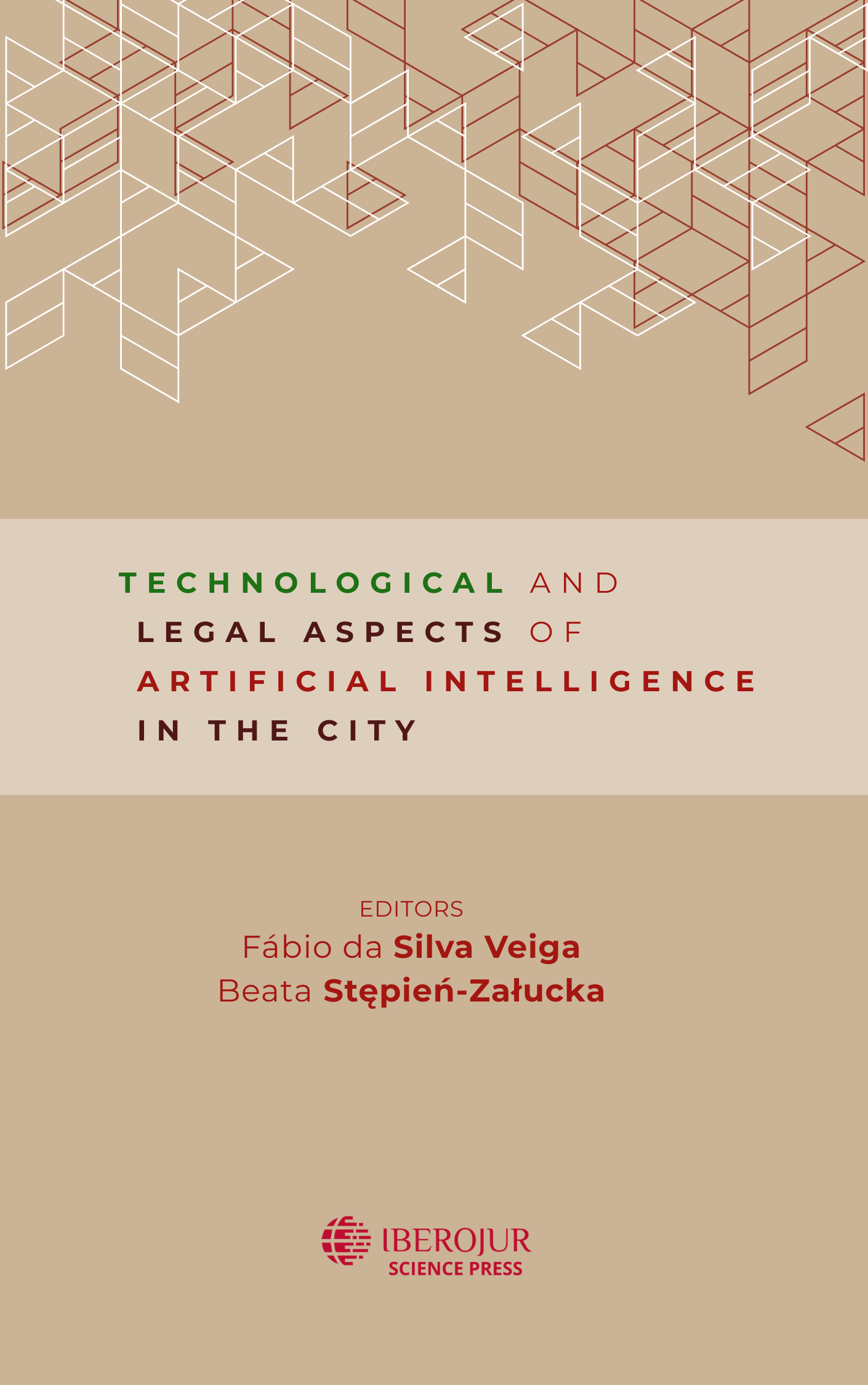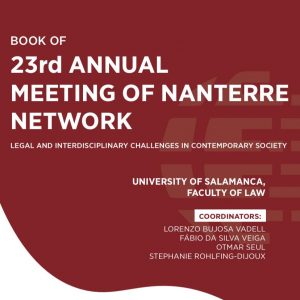[E-book] Technological and Legal Aspects of Al in the City
€2.50
Title: Technological and Legal Aspects of AI in the City
Digital version (E-book)
Edition: Instituto Iberoamericano de Estudos Jurídicos and University of Rzeszów
Coordinators: Fábio da Silva Veiga, Beata Stępień-Załucka
Cover and layout design: Mariana Dares
Format: PDF / PDF-A
ISBN: 978-989-36054-6-2
DOI: https://doi.org//10.62140/TLAAIC2025
Legal Deposit: National Library of Portugal No. 548565/25
1st Edition: Instituto Iberoamericano de Estudos Jurídicos, University of Rzeszów
Rua de Avilhó, 214, Matosinhos (Porto) – Portugal
May 2025
© 2024 Instituto Iberoamericano de Estudos Jurídicos – IBEROJUR
© [Multiple authors]
Citation: VEIGA, Fábio da Silva; STĘPIEŃ-ZAŁUCKA, Beata (Coords.). Technological and Legal Aspects of AI in the City. Porto: Instituto Iberoamericano de Estudos Jurídicos, 2025. 216 pages. ISBN: 978-989-36054-6-2.
INTRODUCTION
The volume Technological and Legal Aspects of AI in the City brings together a selection of contributions presented during the II CONFIAR – International Conference on Artificial Intelligence and Liability, held in Rzeszów, Poland, under the auspices of the University of Rzeszów, in collaboration with IBEROJUR – Instituto Iberoamericano de Estudos Jurídicos. This pioneering academic event convened scholars, practitioners, and institutional actors from multiple jurisdictions to engage in critical dialogue on the profound transformations that Artificial Intelligence (AI) is imposing on urban life, legal reasoning, and regulatory frameworks.
As AI technologies increasingly permeate the urban environment—from automated surveillance and predictive policing to smart transportation systems and algorithmic governance—questions concerning legal responsibility, ethical design, and democratic control gain renewed urgency. The conference sought to examine these challenges through an interdisciplinary lens, reflecting the complexity of the intersection between law, technology, and society.
The contributions in this book traverse a diverse range of themes, including algorithmic liability, data protection in smart cities, the governance of autonomous systems, and the normative implications of machine learning in public administration. Particular attention is given to the urban dimension of AI, acknowledging that cities are not only testbeds for innovation but also spaces where rights, risks, and responsibilities converge.
This publication is the result of a collaborative effort between distinguished academics from Europe, the Americas, and beyond. It reflects the scientific rigor and institutional support of the conference’s organizing entities, particularly the Scientific and Organizational Committee chaired by Professor Beata Stępień-Załucka and supported by an international board of experts. By fostering cross-border dialogue and comparative reflection, this book aims to contribute meaningfully to the evolving discourse on AI and urban governance.
We extend our gratitude to all who participated in the II CONFIAR Conference and to those who contributed to this volume. It is our hope that the research collected herein will serve as a valuable resource for jurists, policymakers, technologists, and scholars navigating the multifaceted legal landscapes of artificial intelligence in contemporary cities.
Descrição
Table of contents
Modelling three-dimensional numerical objects using software based on AI algorithms – creative and intellectual rights
Grzegorz Budzik
Łukasz Przeszłowski
Mariusz Oleksy
Legal and technical aspects of numerical modeling AI supported for manufacturing spare parts to restore the functionality elements of critical infrastructure
Grzegorz Budzik
Beata Stępień-Załucka
Mariusz Oleksy
The negative effects of the use of AI on electoral rights in Romania
Andra Nicoleta Puran
Possibilities of implementing educational practices in the field of AI and 3D printing as an element of the development of the smart city idea
Andrzej Paszkiewicz
Joanna Woźniak
Marek Bolanowski
AI and smart city solutions in local government in the Federal Republic of Germany
Ewa Tuora-Schwierskott
Rozwiązania AI i Smart City w samorządzie lokalnym Republiki Federalnej Niemiec
Ewa Tuora-Schwierskott
M-Citizen – problems of digital exclusion of seniors
Ewa Żołnierczyk
Artificial intelligence – a threat or future in office work in local government
Justyna Michalska
Amor artificial: direitos fundamentais, responsabilidade civil e reflexões sobre os relacionamentos com robôs
Maria Eugênia Londero Deggeroni
Digital threats in smart cities – a comprehensive review in the context of artificial intelligence
Michał Madera
Andrzej Paszkiewicz
Lesław Bańdur
Sławomir Świder
Responsabilidade no uso de inteligência artificial no monitoramento de dispositivos eletrônicos para fumar nas redes sociais: perspectivas no direito comparado
Naiane de Araujo Garcez Aires
Igor Adriano Trinta Marques
The right to dignity at work and new technologies, between protection and vulnerability
Carmen Constantina Nenu
Artificial intelligence as a contemporary legal challenge – outline of issues
Bartłomiej Kowalski
Przemysław Niemczuk
Threats to human rights from artificial intelligence
Paweł Kuczma
Zagrożenia dla praw człowieka ze strony sztucznej inteligencji
Paweł Kuczma
The role of fiscal councils in promoting digital technologies and green energy transition
Maciej Serowaniec
Justiça ética e inteligência artificial
Vinícius Leite Ferreira
Os desafios no cumprimento das obrigações na era da inteligência artificial (IA): a limitação convencional da responsabilidade civil na utilização destes novos mecanismos
Ana Sofia Portela de Sá Pereira
Dados neurais
Milena de Bonis Faria
Tem de iniciar sessão para enviar uma avaliação.



![[E-book] A salvaguarda da saúde pública em tempos de pandemia: o seu enquadramento na ordem e segurança públicas](https://iberojur.com/wp-content/uploads/2022/05/Livro-AFS-banner-300x300.png)
![[E-book] Derecho Iberoamericano en Análisis](https://iberojur.com/wp-content/uploads/2021/06/Portada-3D-Redes-Sociales-300x300.png)



Avaliações
Ainda não existem avaliações.